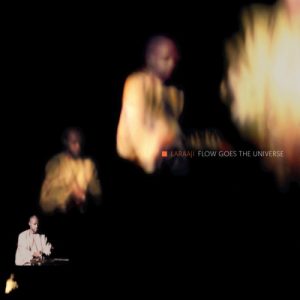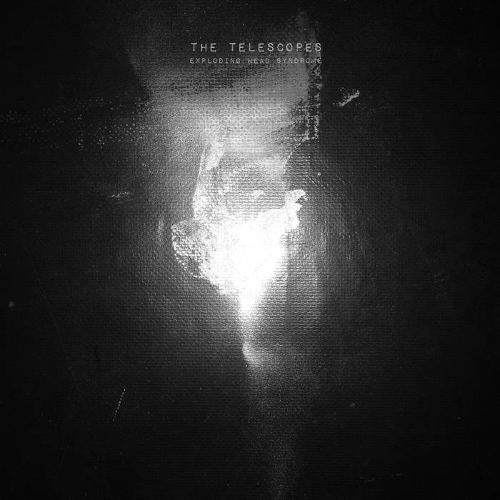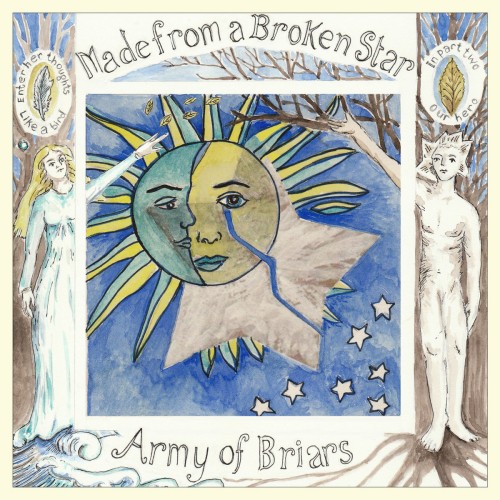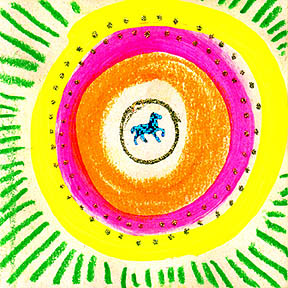 Laraaji was discovered by Brian Eno in 1979 while he was playing in Washington Square Park. At this point Eno had moved to the US and was in the process of working on his Ambient series of albums and label that had started with Music For Airports.
Laraaji was discovered by Brian Eno in 1979 while he was playing in Washington Square Park. At this point Eno had moved to the US and was in the process of working on his Ambient series of albums and label that had started with Music For Airports.
Laraaji’s release would be Ambient 3: Day Of Radiance and was be released in 1980; it is the only Ambient release where Eno is not credited as a songwriter. Laraaji has gone on to make many albums, including releases with Roger Eno. Flow Goes The Universe is a re-release of a 1992 album produced by Michael Brook, who has also worked with Eno and David Sylvian.
The tracks length gives you space to contemplate as the music slowly evolves over its running time. Laraaji’s work has a way of working into your subconscious and taking you on an inner journey of contemplation.
Side one is taken up with the twenty-three-minute piece “Being Here” that mixes Laraaji’s zither with electronics and studio manipulations. Here the music hangs in the air like mist on an autumn morning, adding a sense of calm as notes fall like rain on a mountain and you are instantly transported to a peaceful place. It gives a trance-like feeling as the zither is played through vast echoed canyons, its notes slightly repeating over each other. This is similar in some respects to Harold Budd’s piano work, where reverb and echo enhance a sense of tranquil melancholy in the listener.Side three starts with “Zither Dance”, a piece that reminds me of his earlier Day Of Radiance album as it gives off the same jittery atmosphere like summer fireflies as a couple of pieces on that album. The hammering on the zither, mixed with the treatments, takes you into a slightly unreal world as the notes move in circular fashion, drawing you further in to the dance and into a trance at the same time.
“In Continuum” has the zither played with a cello bow which gives off an odd sound that is a cross between whale call and the chants of Tibetan Buddhist monks. It sounds like some electronics give it a more rumbling bass as the instrument slightly feeds back on itself. The track moves slowly, and its feeling is that of the calm beauty of sitting alone as dawn rises. The final side starts with “Deep Celestial”, another Zither track where the notes hang in an air of cosmic reverb, only to pass over you like winter stars. It’s a track that for me I could have bathed in its ambience for longer than its running time; it has a sense of stillness that is unique to Laraaji and a way of making your mind wander to memories of places that you visited, and a sense of quiet found there. “Space Choir” is a slight piece, played again on the M1 synthesiser, its haunting voice sounds carrying across the cosmic oceans to fill your living room.I did have to check what the M1 looked like as I had not stumbled across one before and it seems like an interesting instrument to get sounds out of, similar to the Yamaha DX7. “Mbira Dance” finishes the album, its plucked notes chiming like gamelan instruments are enhanced by a vocal from Laraaji, at times one that gives the feeling of being at some ancient temple in the cool of an afternoon.
This is another beautiful vinyl release from All Saints; the clarity and quality of the pressing soundwise is quite beautiful. The records are housed in a gatefold sleeve that features an interview with Laraaji, conducted in 2020, talking about his inspirations and trance states. For me, this is one of his finest albums as he shifts between instruments to create different ambient textures that hang in the room long after the discs finish spinning, and Brooks’ treatments add a sonic energy to Laraaji’s incredible musicianship. Flow Goes The Universe is truly a thing of wonder.-Gary Parsons-



